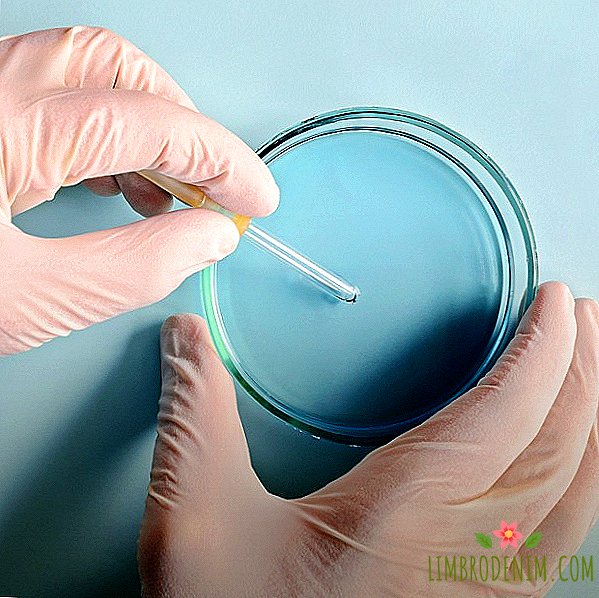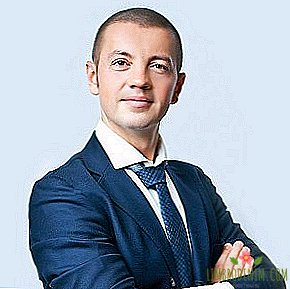Journalist Olesya Shmagun on how to get the Pulitzer Prize
Under the heading "Case" we introduce readers to women of different professions and hobbies that we like or are simply interested in. This time we spoke with Olesya Shmagun, a Pulitzer Prize winner for participating in the Panama Dossier project and a journalist known for her corrupt investigations. She told how she participated in one of the most high-profile investigations of recent years, why international cooperation for journalists and why without civil society it is useless to call officials to account.
On urban journalism and "Surkov's propaganda"
I came to journalism at university. At the age of 18, she began working as a correspondent for Avtoradio, where she worked on news. Then she worked in the then well-known print publication Gazeta in the politics department. Then the paper version was closed, and for a couple of months I was transferred to the Vzglyad newspaper, a sample of Surkov's propaganda. My former editor called me there, he convinced that you shouldn’t believe reviews on the Internet. But it quickly became clear that all the stereotypes about the "Look" turned out to be true. Then I began to engage in business journalism in the annex to the newspaper "Izvestia" - "Marker", when an adequate team was still working there.
Lyosha Ametov (co-owner of Look At Media. - Approx. Ed.) twice suggested that I go to The Village. At first, I refused, because I didn’t really want to do a hipster agenda. But it turned out that in the city edition it is possible to write not only about parties and coffee houses, but also to work with social and political topics. As a special correspondent, I was given a great deal of freedom of action, and we worked on the protests well. During my work at The Village in Moscow, there was a flourishing of civic activism and "small deeds", so that we were able to meet the demands of disgruntled citizens quite well. I worked at The Village for two years, and some still wonder how I left for investigation.
About working in a large Eastern European team
After leaving the city edition, I did not long develop the Moscow libraries, but then I got married and moved to Riga. Here, at one of the trainings, I met guys from the OCCRP (Center for the Study of Corruption and Organized Crime) - an organization that brings together investigative journalists from Eastern Europe. They were just looking for a Russian-speaking employee. So they took me to work in an international organization.
OCCRP has a website where investigations are published in English. But people from different countries work in the organization, so in each of them we have a local media partner. For example, in Russia it is Novaya Gazeta. But OCCRP collaborates with other publications. For example, my latest investigation of the real estate of the new husband of the ex-wife of Vladimir Putin was published on Medusa.
If we talk about what happened before the “Panama dossier”, then for me two materials are especially important. The first is about Ekaterina Tikhonov (the alleged daughter of President Vladimir Putin. - Approx. Ed.). In "RBC" they wrote about her connection with the "Inopraktika" foundation, and I discovered that she is building a scientific career: she publishes scientific articles in the field of physics and mechanics, patents inventions. I guess she is preparing to defend a thesis. In its co-authors indicated quite status people: the rector of Moscow State University Viktor Sadovnichy and the head of the department of applied mechanics Vladimir Alexandrov. But, as is usually the case, representatives of the academic community told me that they had never seen it at thematic seminars.
And the second story is about the journalist from Azerbaijan Khadija Ismayilova. She collaborated with the OCCRP and made inquiries about corruption in her country. She was arrested, as we believe, for frankly political reasons. My colleagues and I thought for a long time how to help her, and then we just decided to release even more investigations about the corruption of local officials. A series of these materials was called “Khadija”. For example, I managed to find a villa in the suburban village of Gardens Meiendorf, which belongs to Leyla Aliyeva, the eldest daughter of the President of Azerbaijan.
Working in a large team helps a lot, because you can always refer to colleagues from other countries to understand how open data works in a particular region. Suppose if I need information about real estate or business assets in Ukraine, France or Austria, I can turn to my colleagues, exactly like me, if their investigation is connected with Russia.
One example is the investigation of how a large international company, Bombardier, paid bribes to people close to the former head of Russian Railways, Vladimir Yakunin. The first investigation was based on documents from the Panamanian archive. After that, the Swedish police began an investigation, and company employees turned to my colleagues from Swedish public television and provided new evidence. After that, we have already released a continuation of the investigation. Now, in the criminal case in Sweden, one person has been arrested, several more are being held as suspects.
About the Panama Dossier and Pulitzer Prize
Initially, the Panamanian documents fell into the hands of journalists from the German newspaper Süddeutsche Zeitung, but they quickly realized that they could not process such an array of data on their own. They appealed to the International Consortium of Investigative Journalists (ICIJ) to arrange global cooperation. They began to invite their people, who had long been engaged in transnational investigations, and invited more people from OCCRP. Among them were several Russian journalists: Roman Anin, Roman Shleinov, Dmitry Velikovsky and me.
We had a lot of documents at our disposal, above all, journalists all over the world were looking for contacts between officials and politicians with offshore companies. That is how we found out that several companies were registered with Sergey Roldugin, a musician and childhood friend of Putin. All the information needed to be processed, verified, verified and turned into an interesting story. It seems to me that our great merit is that we were able to personally meet and talk with Sergey Roldugin: the heroes of the investigations very rarely communicate with journalists, at least in Russia. We bought tickets to the conservatory in advance for his concert, and then we met him backstage and asked to answer our questions.
All those who worked on the Panama dossier share the concept of radical sharing, that is, all the finds in the large Panamanian base were common to all journalists and everyone could work on any story. For example, the story about Sergei Roldugin interested journalists from Germany, Lithuania and Switzerland. We worked together and helped each other. And I think that "Panama Papers" sounded so loud, not only because of the high-profile finds, but also because of the scale of the project. We showed not just separate stories of crime, but a wider picture: what a large-scale problem for the entire world community is the use of offshore companies to conceal illegal income or other offenses. But such stories can not happen every day, and, perhaps, journalists should maintain competition, they should hunt for their unique story.
It's great that this year the Pulitzer Prize was awarded to such a huge team of journalists, and “Panama Papers” was recognized as an important project. I am very proud that I was part of this team, and there was a feeling that I was playing in a film about very good journalism.
About round-the-clock journalism and civil society
Journalism involves round-the-clock involvement, even if it is not about investigations. In general, I like that I do not sit from a call to a call in the office, going crazy with boredom. In my opinion, the more work the better. Although it sometimes becomes hard for you to constantly encounter human greed and recklessness - in general, you deal more often with bad people.
Journalists cannot substitute for themselves the court and the investigation; journalistic investigations alone will not achieve any significant changes in the country. It requires a civil society that will work with the result of these investigations. Even in the case of the Watergate reference scandal, many people forget that it is not only the investigation of journalists, but also the parliament, which asked the president uncomfortable questions, and the judges, who adequately conducted the process against an official of such rank. And in this sense, the process is quietly, but it is moving from a dead point. Organizations such as, for example, the Anti-Corruption Foundation, not only dig up stories that many journalists dream of, but also make them part of an activist agenda, citizens take to the streets and demand answers. So it probably should work in a democratic society.




